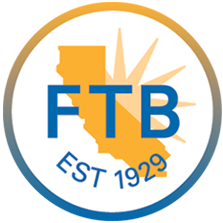FAQs - Form 990
Here are some common questions you may have about Form 990
What is Form 990?
When is Form 990 due?
Which Form 990 must I file?
- File Form 990-N (e-Postcard) if your organization's gross receipts are normally $50,000 or less.
- File Form 990-EZ if your organization's gross receipts are less than $200,000 and total assets are less than $500,000.
- File Form 990 if your organization's gross receipts are $200,000 or more, or its total assets are $500,000 or more at the end of the tax year.
- Form 990-PF - Private foundations, regardless of their financial size, must file Form 990-PF to report their financial activities and grant-making activities.
Is there a penalty for not filing Form 990?
Yes. An exempt organization that files IRS Form 990 after the deadline and doesn't provide any reasonable cause for late filing will be imposed a penalty by the IRS.
A penalty of $20 a day, not to exceed the lesser of $11,000 or 5% of the gross receipts of the organization for the year, can be charged when a return is filed late unless the organization provides an attachment with an explanation that the late filing was due to reasonable cause.
Organizations with annual gross receipts exceeding $1,129,000 are subject to a penalty of $110 for each day failure continues (with a maximum penalty for any one return of $56,000). The penalty applies on each day after the due date that the return isn't filed.
Is Form 990 subject to public inspection and disclosure?
Yes, Form 990 is a public document that is subject to public inspection and disclosure. Anyone can request a copy from the IRS or access it through various online databases, such as Guidestar or the organization's website.
Additionally, the IRS makes these forms available to the public on its website.
What is unrelated business income?
How can I know my organization's exempt status?
What is the purpose of Schedule A in Form 990?
I need to amend my Form 990. What to do?
To amend your organization's previously filed 990 return, file a new return providing all the information and not just the new or corrected information. Also, check the “Amended return” box in Item B indicating you're filing an amended return.
You can amend all the information in your original Form 990 return except the organization's EIN.












